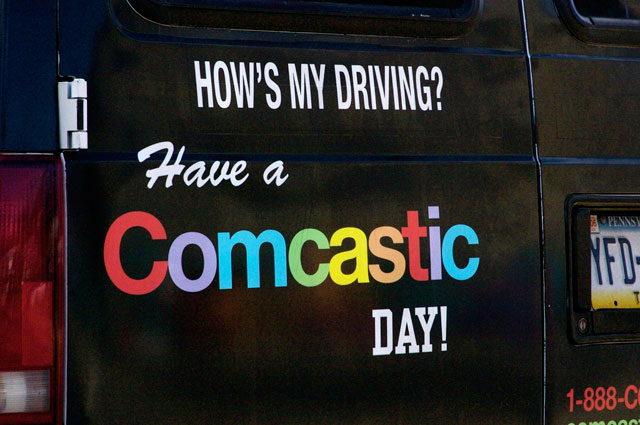As a blizzard hammered the east coast on Thursday morning, news of a pending deal that could see Time Warner Cable merge with Comcast hammered pay TV subscribers across the country. The two national TV, Internet and phone service providers are regularly ranked at the very bottom of the industry when it comes to subscriber satisfaction, and consumers had strong reactions when they learned the two giants intend to merge. How strong? According to one report, they likened the unholy union to the Death Star in “Star Wars” and the evil Eye of Sauron from “The Lord of the Rings.”
“Consumers weren’t buying the assertion of Comcast CEO Brian Roberts that the combination, which will have 30 million TV and Internet subscribers, would be ‘pro-consumer and pro-competitive,'” AP reporter Ryan Nakashima wrote. “Using a contorted logic, the two companies are expected to argue to anti-trust regulators that the fact they don’t directly compete against each other in many parts of America shows the deal won’t reduce competition and therefore should be approved.”
That logic is likely among the causes of consumers’ outrage. There’s already barely any competition in the marketplace, so why not ensure that things stay that way?
“It’s almost subconsciously built into their business model that they don’t have to worry so much you’re going to leave for a competitor,” America Customer Satisfaction Index managing director David VanAmburg told AP. “It’s definitely a big factor.”
Meanwhile, some industry watchers expect the merger to be scrutinized by regulators, who may have trouble finding ways to convince even themselves that a deal between Comcast and Time Warner Cable would be in consumers’ best interest.
“I think hopes of a rapid approval of this deal are greatly misspent, and that it may take a ringing Republican victory in the 2014 mid-terms for it to gain traction,” Sector & Sovereign Research analyst Paul Sagawa wrote in a note to clients. “If it were me, I would only approve it with a firm regulatory framework that requires broadband network investment, ensures open competitive access into and out of the network, allows 3rd party consumer equipment to connect directly to the internet and to front TV service from the carrier, and that assures service pricing in line with competitive market levels. Then again, we’re talking about Washington, so who really knows what will happen.”




